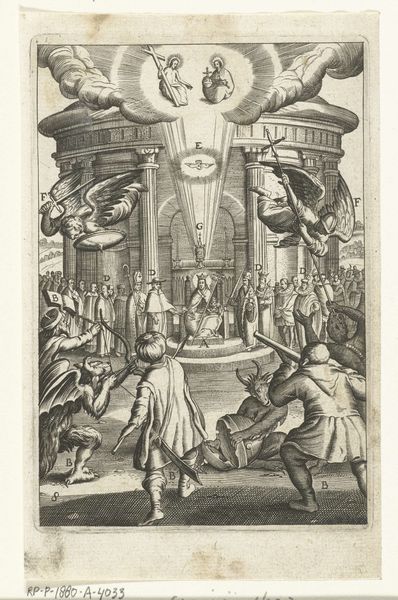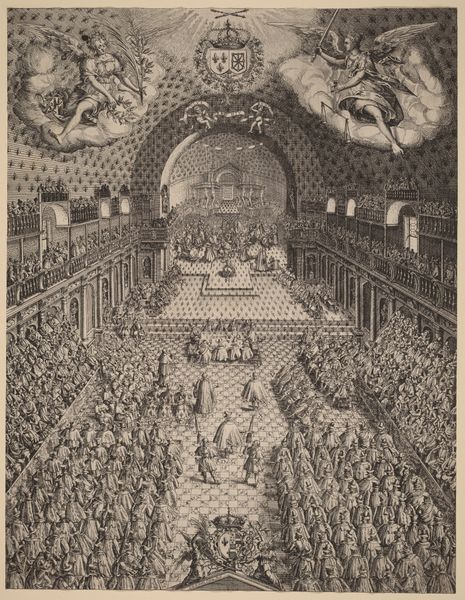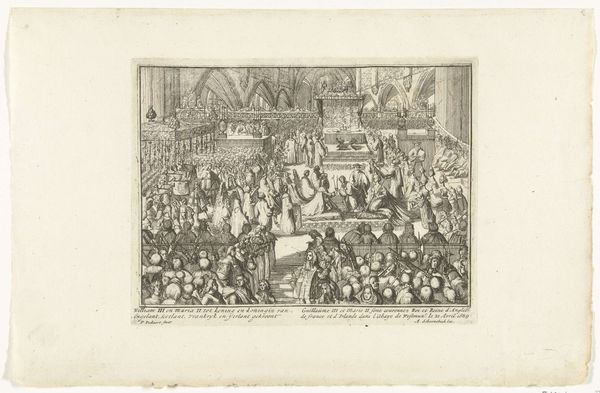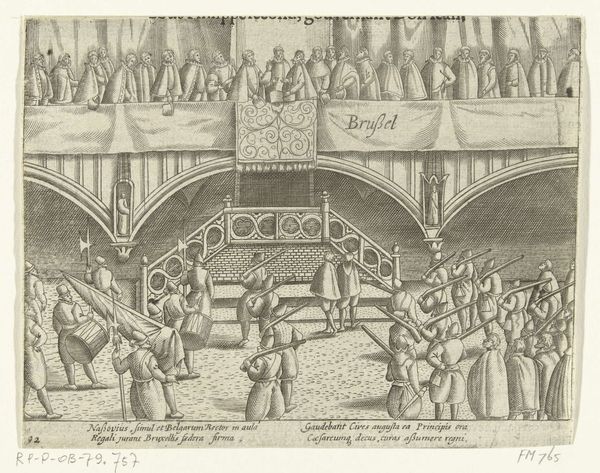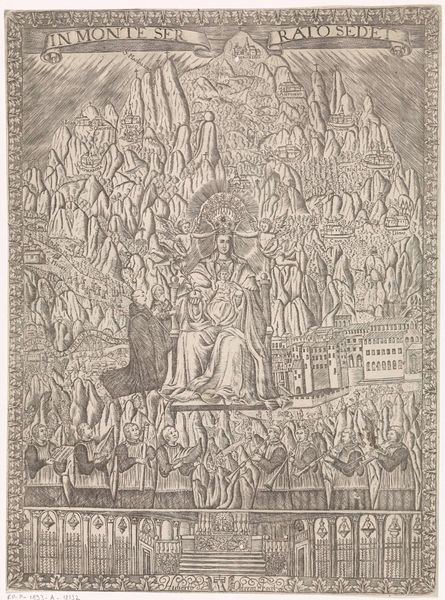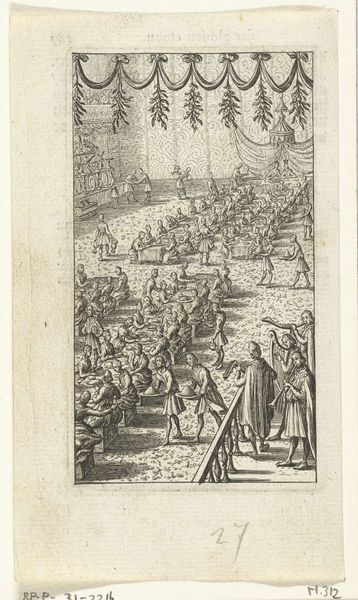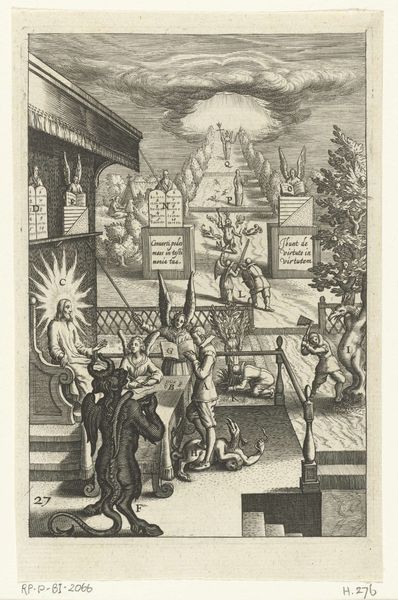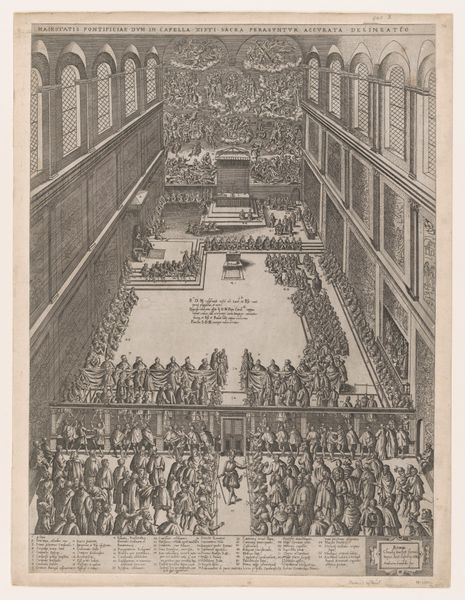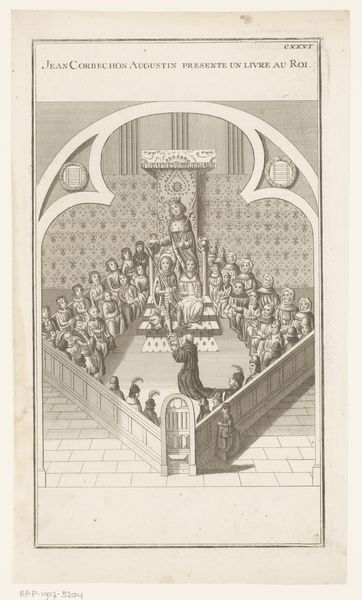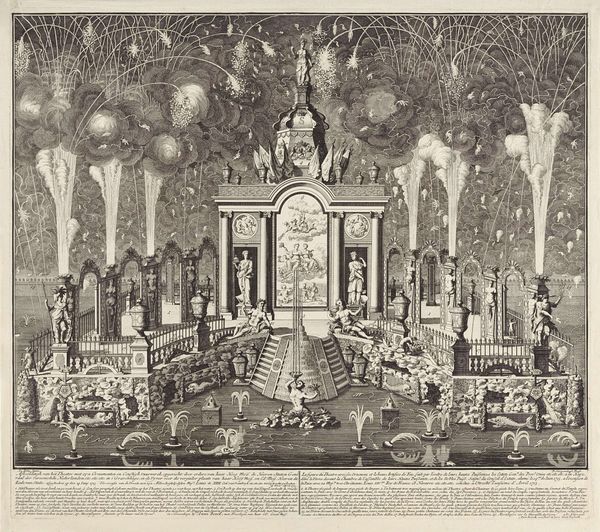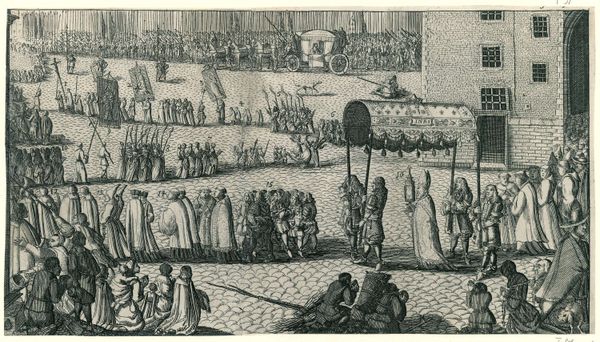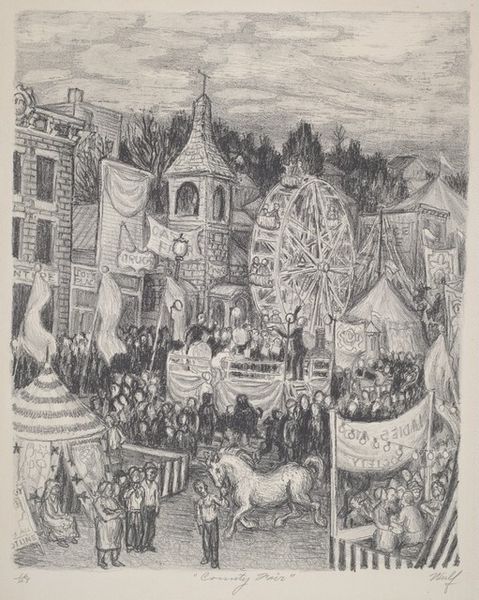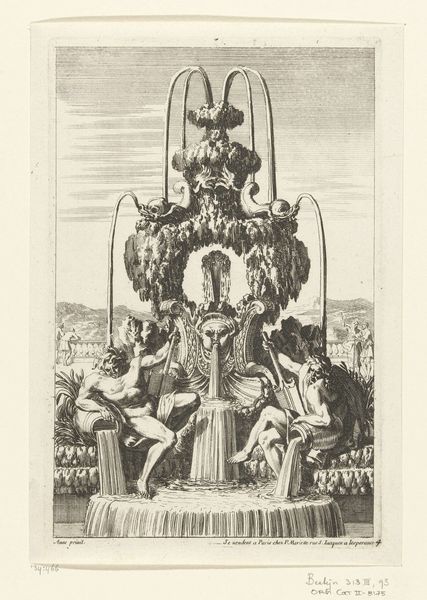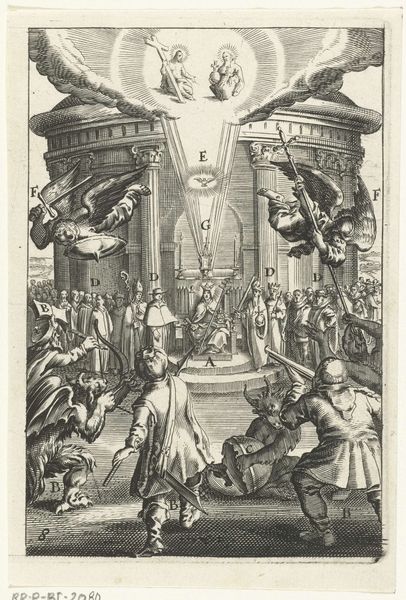
print, engraving
#
baroque
# print
#
pen illustration
#
pen sketch
#
old engraving style
#
figuration
#
cityscape
#
genre-painting
#
history-painting
#
engraving
Dimensions: height 258 mm, width 169 mm
Copyright: Rijks Museum: Open Domain
Nicolas Chevalier made this print of a masked ball in 1713. It offers a glimpse into the elaborate social rituals of the European aristocracy during the early 18th century. The image depicts a lavish feast, complete with music and masked figures, staged within a grand hall. Chevalier employs visual codes of the time, such as formal attire and elaborate table settings, to convey the wealth and status of the depicted social group. The location could be France, given the artist’s name, or the Netherlands, where he lived later in life. The print gives a sense of the importance attached to courtly spectacle. But also, perhaps, the slightly chaotic and carnivalesque atmosphere of these events, where social hierarchies could be temporarily blurred behind the masks. To fully understand this work, one could look at period sources such as etiquette manuals, memoirs, and accounts of similar events. These resources would provide a clearer picture of the print’s cultural context. Analyzing art in relation to its institutional and social setting highlights its function as a mirror reflecting the values, anxieties, and power dynamics of its time.
Comments
No comments
Be the first to comment and join the conversation on the ultimate creative platform.
